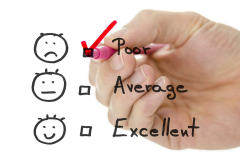How to Deal With Poor Performance
When someone on your team is performing poorly, it's important to diagnose which of these factors is at play. Only then will you be able to help the person realize their full potential.
If you suspect your team member is limited by their capability, first look at the equipment they use and the resources they need to do their job. Look for points of frustration, and ask them if they're missing anything.
Next, see if they have any knowledge or skills gaps, and retrain them if necessary. If your team member is still struggling, you might need to rethink their role. Consider delegating tasks, or changing the role to better fit their skills and abilities. Alternatively, if nothing has worked, consider reassigning them to another role that fits their talents better.
If your under performer has the knowledge and skills to do their job, then they might be suffering from low motivation.
To address this, set some clear and meaningful performance goals. Make sure they understand what's expected of them, and what they need to do to improve.
Next, help them succeed by making sure they have the support they need to meet these goals.
Finally, provide regular feedback on their current performance and long-term expectations. When giving feedback, make sure it's timely. Also, be open and honest, and acknowledge success. But don't shy away from giving constructive criticism. Team members need to know their weaknesses, as well as their strengths.
Ultimately though, if someone's performance fails to improve, it may be time for them to move on. Underperforming team members not only limit their own potential, but they can negatively affect your entire team.
Fortunately, there's a lot you can do as a manager to help people improve their performance.
Content
How to Deal With Poor Performance
